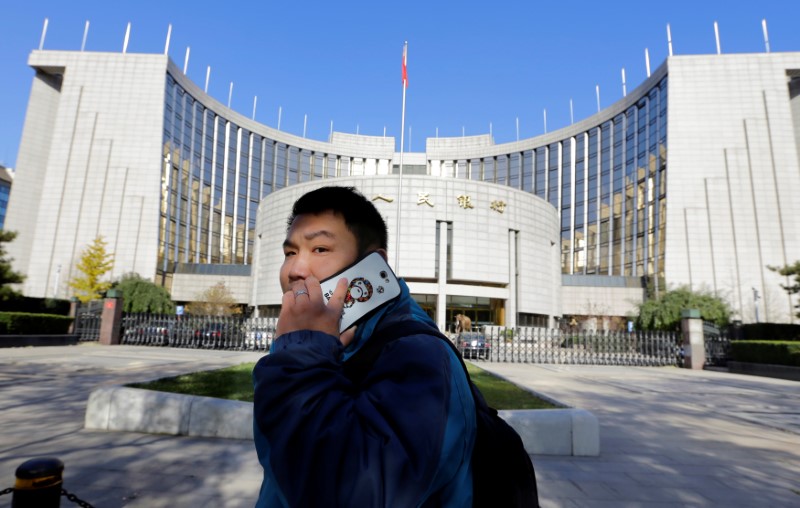By Ambar Warrick
Investing.com -- The People’s Bank of China kept its key lending rates steady on Thursday, holding them at historic lows as Beijing moves to shore up economic growth after the withdrawal of most anti-COVID measures earlier this year.
The People’s Bank of China (PBOC) held its one-year Loan Prime Rate (LPR) at 3.65%, while the five-year LPR, which is used to determine mortgage rates, was maintained at 4.30%. Both lending rates were at their lowest level in the past two decades.
The move was as expected by analysts, and marks the eighth straight month that the PBOC has kept rates at historic lows. The LPR is decided by the central bank based on considerations taken from 18 designated commercial banks, and is in turn used as a benchmark by private banks in offering loans.
Data released earlier this week showed that China’s economy grew more than expected in the first quarter of 2023, amid increased credit activity and consumption. This was driven largely by monetary conditions remaining accommodative, as well as a slew of liquidity measures by the PBOC.
The PBOC had earlier this week kept its medium-term lending facility rates unchanged, signaling that economic growth was largely within the government’s expectations.
Softer-than-expected inflation growth in China also gives the PBOC little impetus to alter policy, ranking it among the few outliers in global central banks that have otherwise tightened monetary policy sharply over the past year.
But the central bank also provided a somewhat conservative GDP estimate for 2023, at 5%, given that certain facets of the Chinese economy are still struggling to recover from three years of COVID ructions.
China’s manufacturing sector in particular has struggled to remain in expansion territory despite easing COVID curbs, and is also facing a downturn in overseas demand for exports.
The Chinese yuan fell 0.1% after the PBOC’s decision on Thursday, threatened by the prospect of rising U.S. interest rates which, coupled with a dovish stance from the PBOC, greatly reduce the yuan's appeal.
